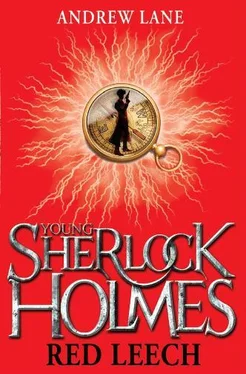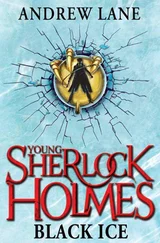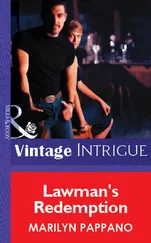“I’m sorry,” Sherlock said. It seemed inadequate, but he couldn’t think what else to say.
“Bad things happen to people,” Crowe said. “It’s the one acknowledged truth of the human condition.” He sighed. “I’m goin’ to trust you to spend time on that translation your brother gave you,” he said. “An’ I’ll try to spend an hour or two a day with you, talkin’ over what your eyes an’ ears can tell you while you’re on this here ship, but the opportunities for proper consideration are scant. The rest of the time is your own. Use it as you will.”
The rest of the meal was conducted in uncomfortable silence. As soon as it finished, Sherlock excused himself. He had a feeling that he’d somehow disappointed Amyus Crowe, and he didn’t want to add to that disappointment by going straight back to his violin lessons. Judging by the slight nod that Rufus Stone gave him as he left, the violinist understood.
He spent an hour in a chair on the deck, reading through the difficult Greek of Plato’s Republic. The process of translating from Greek to English in his head was so laborious that he hardly understood the sense of what he was reading — he could get the words right, but by the end of the sentence he’d lost track of where it had started and what it was trying to say.
He looked up at one point, wrestling with a particularly difficult transitive verb, to see a white-uniformed steward standing beside him holding a tray. It was the same man who had helped him with directions and who had served at dinner the night before.
“Is there anything I can get for you, sir?” the steward asked.
“A Greek dictionary?”
The steward’s lined, tanned face didn’t change. “I’m afraid,” he said, “that I cannot help you there, sir. We do have a library on board, but I do not believe there is a Greek dictionary upon its shelves — especially a dictionary of ancient Greek, which is what I suspect you need.”
“Do you know every book that’s in the library?” Sherlock asked.
“I have been with this ship ever since she launched,” the steward replied. “Not only do I know every book in the library, I know every cocktail on the menu, every plank on the deck and every rivet in the hull, yes?” He nodded his head. “Grivens is the name, sir. If you need anything, just ask.”
Sherlock’s gaze was drawn towards the hand that held the tray. It was tattooed from the wrist upward, disappearing into the darkness of the man’s sleeve. It looked to Sherlock like a pattern of tiny scales, coloured a delicate, gold-flecked blue that shone in the sunshine.
The same colour as Sherlock had seen on the wrist of the figure that had been observing him from the shadows the day before. Coincidence, or not?
Grivens noticed the direction of Sherlock’s gaze. “Is something wrong, sir?”
“Sorry” Sherlock thought quickly. It was obvious that he’d spotted something odd, but he had to cover for his gaffe. “I was just noticing your... your tattoo. My... brother... has one just like it.” In his mind he formed a quick apology to Mycroft, who was the last person in the world Sherlock would expect to have a tattoo. Except perhaps for Aunt Anna.
“Had it done in Hong Kong,” Grivens explained. “Before I joined the Scotia, that was.”
“It’s beautiful.”
“The man who did it was a wrinkled little Chinaman in the back alleys of a marketplace in Kowloon,” the steward continued. “But he’s famous among sailors all over the world. I swear there’s nobody to touch him, not anywhere else. There’s colours he uses that nobody else can even mix. Any time I see a tattoo done by him on another sailor, or if another sailor sees my tattoo, we just nod at each other, cos we know we’ve both been to that same little Chinaman. It’s like being in a club, yes?”
“Why do so many sailors have tattoos?” Sherlock asked. “As far as I can tell, every member of this crew has a tattoo of some kind, and they’re all different.”
Grivens glanced away, out to sea. “It’s not something we tend to talk about, sir,” he said. “Especially to passengers. The thing of it is, and forgive me for being indelicate, but if there’s a shipwreck then it might take some time for the bodies of the sailors to wash ashore — that’s assuming they ever do. There have been instances where bodies couldn’t be identified, even by their closest relatives. The action of salt water, harsh weather and the fishes of the deep, if you take my meaning. But tattoos last a lot longer. A tattoo can be recognized long after a face is gone. So that’s how it started — a means of identification. Gives us some measure of comfort, knowing that after we’re gone at least our families have a fighting chance of being able to bury us properly’
“Oh.” Sherlock nodded. “That makes sense, I suppose. Thanks.”
Grivens nodded. At your service, sir. Are you going to be here for a while?”
“Where else would I go?”
“I’ll check back with you later, then. See if you need anything else.”
He moved away, looking for other passengers to serve, but leaving Sherlock thinking. If this was the man who had been watching him from the shadows — if he was being watched from the shadows, which was itself an assumption based on a scuffle and a movement — then why was he so concerned as to whether Sherlock would be staying there on deck? Did he want to search Sherlock’s cabin for some clue as to what Sherlock knew? Or did he intend going after Amyus Crowe and Virginia? Whatever the answer, Sherlock couldn’t stay there. He quickly got up and headed off along the deck and down the stairway to the corridor where his cabin was located.
The door to his cabin was open a crack. Was it the steward, searching it, or was it Amyus Crowe inside?
Sherlock moved closer, trying to look through the crack to see what was happening. If it was Grivens then he would go and fetch Amyus Crowe, tell him what was going on.
Something pushed him hard in the small of his back. He fell forward, stumbling into the cabin. Another push and he was on the floor, just managing to miss the edge of the bunk bed by twisting his head and curling up. The carpet burned against his face as he hit it. He curled round, looking up at the doorway.
Grivens shut the door behind him. His faded blue eyes were suddenly as cold and as hard as marbles.
“You think yourself clever, yes?” he snapped. Sherlock caught his breath at the abrupt change of attitude from servitude to anger. “I’ve broken better men than you in half. You think I didn’t realize you were going to follow me here to see if I was searching your cabin? I noticed you checking out my tattoo, and I could tell by your eyes that you recognized it from yesterday, when I was watching the three of you. So I made you think I was going to search your cabin, and I lured you back here.”
“To do what?” Sherlock asked. He was finding it difficult to catch his breath lying on the floor, twisted around like that.
“To get you off this ship. You, then the other two.”
“Off this ship?” Sherlock’s mind took a second or two to catch up. “You mean — throw us off? Into the Atlantic ? But we’ll be missed!!"
“The Captain might even turn around, steam back and look for you, but it won’t do any good. You won’t last half an hour in that water.”
Sherlock’s mind was racing, trying to work out how this had happened. You’re not part of this. You can’t be. The men we’re following wouldn’t have known which ship we were going to take — if we were going to take one at all.”
“All I know is they paid me to keep an eye out for three travellers — a big man in a white hat and two kids. Maybe with another man — a fat man — maybe not. A third of the money now and two-thirds if they see a report in the papers of three or four passengers vanishing overboard.”
Читать дальше












